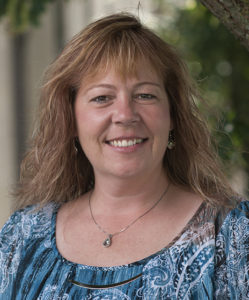Homeland Provides Compassionate Care for Families Impacted by Dementia

Tanya Custer, LPN
Director of Homeland HomeCare
Care and compassion are central to families. Family members help nurse one another during times of illness, knowing the situation is temporary and their loved one will soon be “back on his/her feet.” For families caring for a loved one with dementia, however, the condition is irreversible.
Dementia doesn’t just impact individuals with the disease. It places a significant emotional burden on caregivers, as they strive to adjust to the stages and nuances of the illness. Family members may be reluctant to trust an outsider to care for their loved one, or feel it’s their responsibility to shoulder the role of providing care on their own.
“Most caregivers are busy family members trying to provide the best care possible,” Tanya Custer, LPN, Clinical Manager at Homeland HomeCare says. “They come to us exhausted, overwhelmed and in need of respite.”
For families whose loved ones have recently been diagnosed with dementia, the early stages can be the most difficult.
“Learning your loved one has dementia is an emotional time,” Tanya adds. “Families are adapting to their new reality and often need help.”
Through Homeland HomeCare, families can receive assistance with tasks such as light housekeeping, helping with errands and medication reminders. This support helps family members find balance between their work and personal lives, and role as caregivers.
“Helping caregivers stay physically and emotionally healthy is an important part of our work,” Morgan Westover, CNA, at Homeland HomeCare says. “I care for my clients like I would my own family.”
Providing a diverse network of support for families caring for a loved one with dementia is of growing importance as the baby boom generation (born between 1946 and 1964) ages.
According to studies by the Alzheimer’s Association, the number of individuals in the United States with Alzheimer’s disease (the most common form of dementia) will reach 28 million by 2050, when all baby boomers will be at least 85 years old.
As the needs of clients and families change, so does the scope of Homeland’s work. Homeland provides free education sessions for its partnering home care agencies. In the future, Homeland plans to offer support groups for families facing dementia.
“I encourage caregivers to look into available resources and accept help,” Morgan adds. “No one should take this journey alone. We’re here for you.”
To learn more, please contact Homeland HomeCare at (717) 221-7892.


